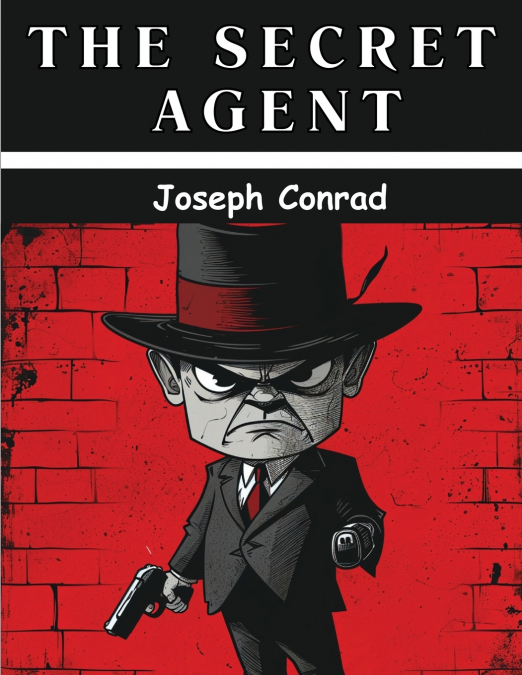
Joseph Conrad
The Secret Agent: A Simple Tale by Joseph Conrad, first published in 1907, is a dark and complex novel that delves into themes of political extremism, espionage, and the moral ambiguities of human behavior. Set in London, it explores the intricate lives of a group of individuals caught up in a plot to commit an act of terrorism.Plot SummaryThe protagonist, Mr. Verloc, is a secret agent working for a foreign embassy. He outwardly appears to be an ordinary man running a small shop in Soho, but in reality, he is embroiled in anarchist activities and serves as an informant. The embassy pressures him to prove his loyalty by orchestrating a bombing to create public panic and discredit anarchists. The chosen target is the Greenwich Observatory, a symbol of science and order.Verloc involves his wife’s intellectually disabled younger brother, Stevie, in the plot, exploiting Stevie’s innocence and naivety. However, the bombing goes tragically wrong, resulting in Stevie’s death. This event sets off a chain of dramatic and devastating consequences, particularly for Verloc’s marriage to Winnie, who is deeply attached to her brother.The novel climaxes with Winnie discovering the truth about Stevie’s death, leading to an intense and emotional confrontation with Verloc, ultimately resulting in murder and further tragedy.ThemesTerrorism and Anarchism: The book critiques political extremism and the moral decay of individuals who exploit ideology for personal gain.Moral Ambiguity: Conrad presents characters who exist in shades of gray, with no clear heroes or villains.Isolation and Betrayal: The story examines the isolation of its characters, particularly Winnie, whose trust and love are betrayed in the most profound way.The Banality of Evil: The novel portrays terrorism and violence not as grand or heroic acts but as the outcomes of petty, selfish motives.Style and ToneConrad employs a satirical yet somber tone, blending irony with a grim depiction of human nature. The narrative structure is intricate, weaving different perspectives and timelines to create suspense and a deep psychological exploration of the characters.LegacyThough initially met with mixed reviews, The Secret Agent is now regarded as a classic, notable for its prescient examination of terrorism and its influence on modern spy fiction. The book’s exploration of moral ambiguity and psychological depth has made it a significant work in English literature.